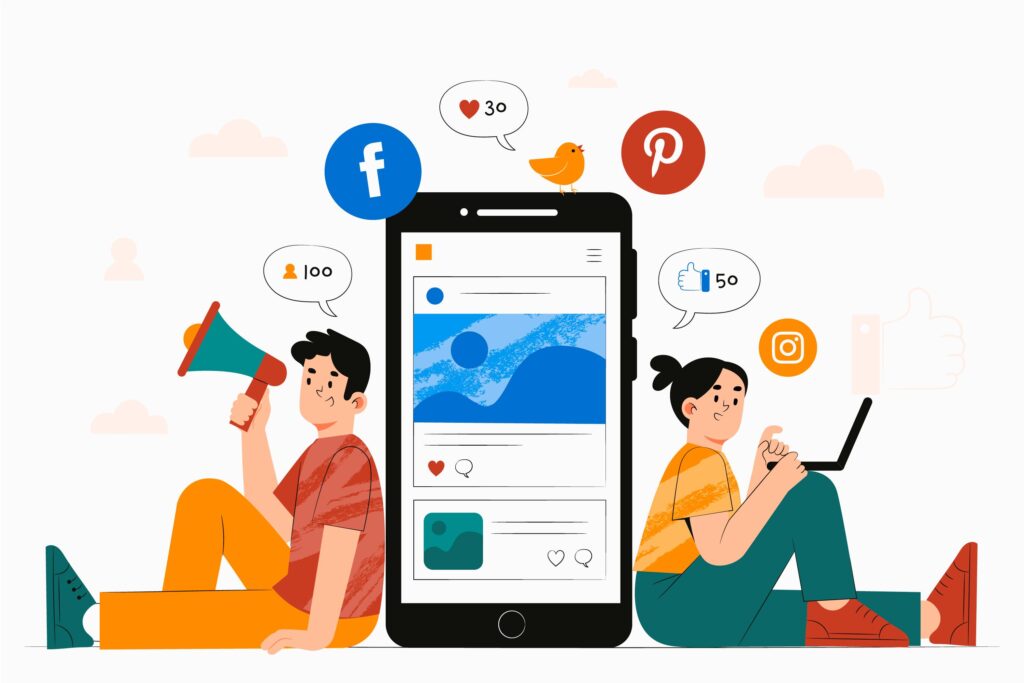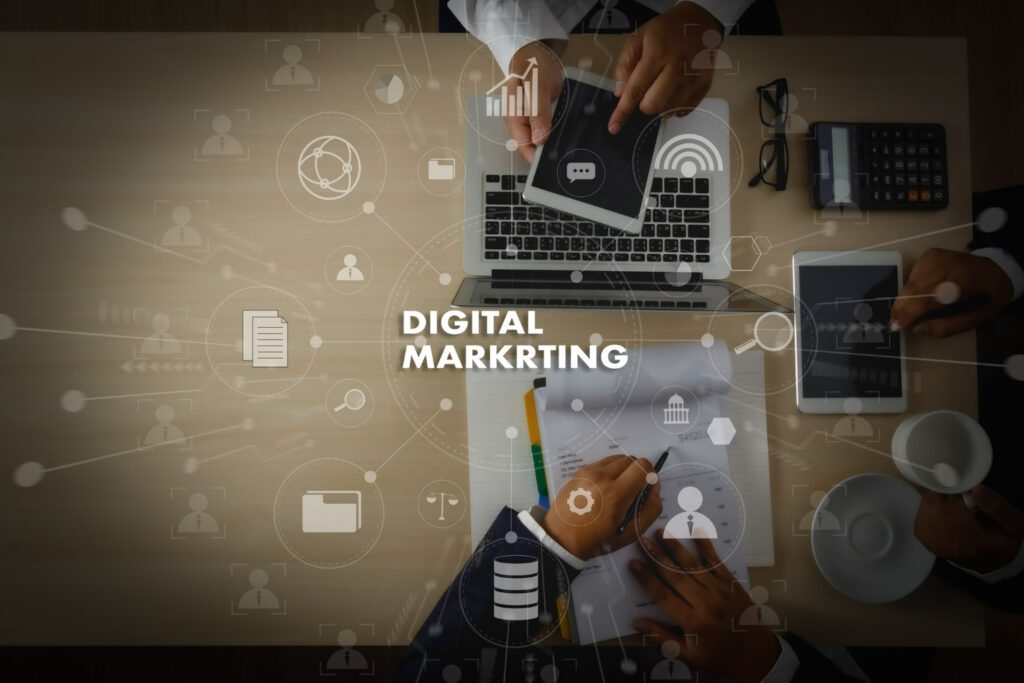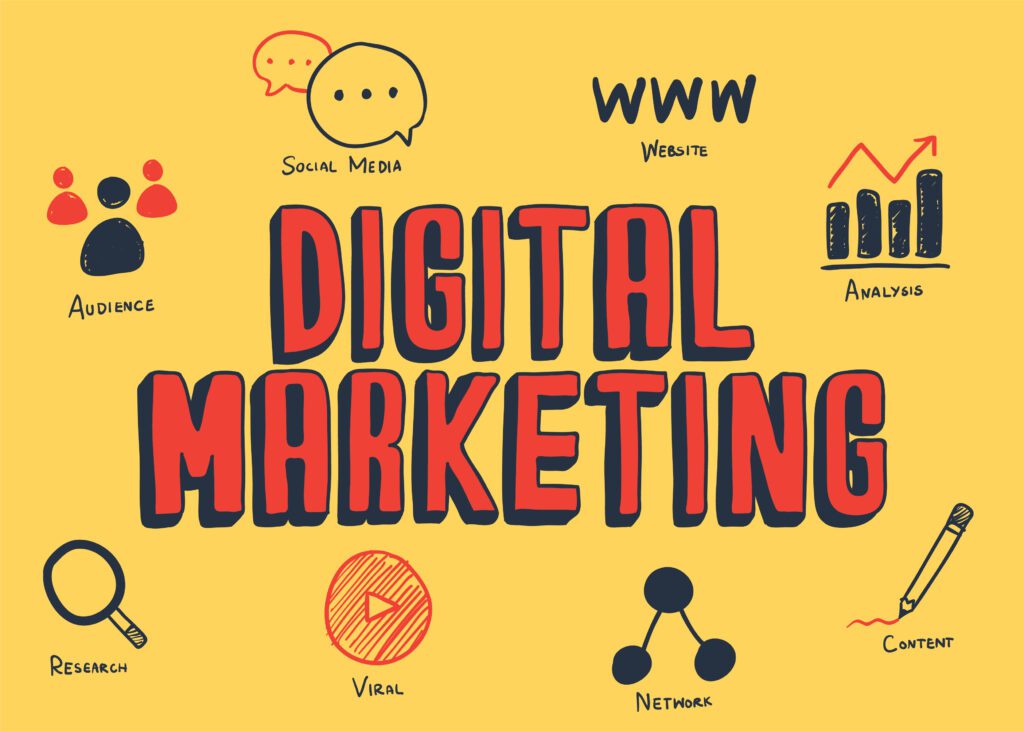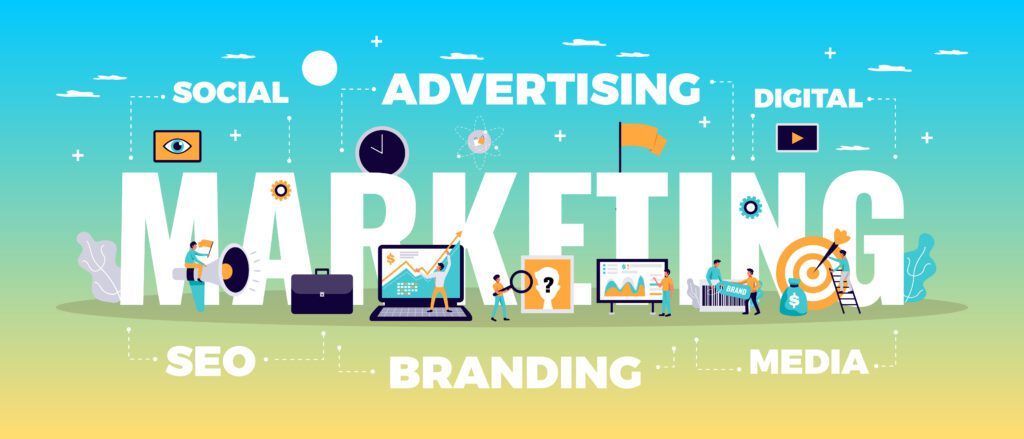
How Digital Marketing Helps Small Business
Digital marketing has emerged as a crucial tool for businesses of all sizes, but its impact on small businesses is particularly profound. In this article, we’ll delve into the various ways digital marketing helps small businesses thrive in today’s competitive landscape.
Cost-effectiveness
Small businesses often operate on tight budgets, making traditional marketing methods financially burdensome. However, digital marketing offers cost-effective alternatives, such as social media marketing and email campaigns, allowing small businesses to reach their target audience without breaking the bank.
Targeted reach
One of the greatest advantages of digital marketing is its ability to target specific demographics and interests. Through techniques like search engine optimization (SEO) and pay-per-click advertising, small businesses can ensure their marketing efforts are reaching the right people at the right time, increasing the likelihood of conversion.
Measurable results
Unlike traditional marketing methods, digital marketing provides clear, measurable results. Small businesses can track metrics such as website traffic, conversion rates, and engagement levels, allowing them to evaluate the success of their campaigns and make data-driven decisions for future strategies.
Increased visibility
With billions of people using the internet daily, digital marketing helps small businesses increase their visibility exponentially. Through tactics like SEO and content marketing, businesses can improve their online presence, making it easier for potential customers to discover them amidst the sea of competitors.
Brand building
Digital marketing offers small businesses a platform to build and strengthen their brand identity. By consistently delivering valuable content, engaging with customers on social media, and providing exceptional online experiences, small businesses can establish themselves as industry leaders and foster customer loyalty.
Key Strategies in Digital Marketing
Search Engine Optimization (SEO)
SEO is crucial for small businesses to improve their visibility in search engine results pages (SERPs). By optimizing their website and content for relevant keywords, businesses can attract organic traffic and increase their chances of appearing at the top of search engine rankings.
Content Marketing
Content marketing involves creating and distributing valuable, relevant content to attract and engage a target audience. Small businesses can leverage blogs, videos, and infographics to showcase their expertise, educate their audience, and ultimately drive conversions.
Social Media Marketing
Social media platforms provide small businesses with a direct line of communication to their audience. Through platforms like Facebook, Instagram, and Twitter, businesses can engage with customers, share updates and promotions, and humanize their brand.
Email Marketing
Email marketing remains one of the most effective digital marketing channels for small businesses. By building an email list and sending targeted campaigns, businesses can nurture leads, drive sales, and maintain ongoing relationships with customers
Table of Contents
Benefits of Online Marketing

The potential customers you can find online is a much larger group than you’ll ever be able to attract only locally. Using digital marketing techniques, you can reach a global audience in a way that’s cost-effective, scalable and measurable.
Some of the key benefits of digital marketing include:
- The ability to interact with your prospects and learn exactly what they are looking for i.e. get to know your customers better!
- The ability to reach out to anyone and anywhere as there are no geographical boundaries with digital
- Target the right audience at the right time – personalization is simpler with digital marketing
- Communicate with your prospects at every stage of the buying process
- Save money and reach more customers for less
- Get to know your audience and drive engagement to create brand loyalty. Get some inspiration from the power of customer loyalty schemes.
- Track and monitor responses to your marketing efforts easily and instantly
Getting started on digital marketing for small businesses

With endless opportunities, digital marketing can seem intimidating if you’ve never used it for a business before. There are a variety of platforms and digital marketing terms that may make it seem like a bigger project than it is.
Small businesses can believe they don’t have the time or money to compete online. As a result, many prefer to take things slowly and stick with one or two forms of traditional advertising, assuming that their business will evolve as time passes.
The fact is the marketplace is competitive and while word of mouth and customer recommendations can help drive traffic, customers will struggle to find your business unless you show up in the places they spend time. After all, 4.6 billion people use the internet for many reasons. That’s 60% global internet penetration according to Digital 2021: Global Overview Report.
So delaying building a presence online is not an effective approach. The best way to ensure success is to promote your business on a global scale and use targeting to attract customers that are interested in your service or product.
Realize Your Customers Are Online

When someone is interested in your business, whether it’s in your niche or they are curious about your brand, the first thing they will do is research online and see what they can find out about you.
In today’s digital age, customers expect to find a website and social media presence. They may be looking for reviews so they can learn what other people are saying about your company and whether it is a good place to do business. For local businesses, 87% of consumers read online reviews – a growth of 6% from 2019 to 2020.
So if a potential customer can’t find you online, they may conclude that your business doesn’t appear to be legitimate. There is a very good chance that a lot of these prospects may decide not to take your business seriously and they will quickly head somewhere else.
Find Out What Your Competitors Are Doing Online

For your business to be successful, you need to pay attention to what your competitors are doing and learn from it. Don’t think of your competitors as someone to beat, but as people who have something to teach you.
When you look at what your competitors are doing online, you will get some idea of what is and isn’t working. Most likely, whatever type of business you are in, your competitors have established a web presence. What kind of content do they use, is there a blog, or do they promote visual content such as videos?
How do they communicate their brand and what makes them unique? How well do they engage with the audience? Can you do better?
A great way to find out what your competitors are doing is to conduct research. Find out what platforms they use, do they focus on keywords, are there influencers they use to drive traffic? Luckily there are some great online tools that can help you do this:
- Semrush – great for keyword ranking and keyword traffic
- Ahrefs – useful for discovering competitors’ most linked content
- Moz – another platform for keyword ranking
- BuzzSumo – track popular content types and influencers
- Google Alerts – a tool for tracking mentions of any competitor your choose to track
- Ontolo – a great tool for backlinks and content marketing
There are also some awesome tools for customer insights to feed into your persona development and content marketing.
Be Accessible to Your Customers

As we already discussed, your business needs to be present where your customers and that’s online. Whatever product or service a person looks for, they will most likely start their search with Google. If you have no online presence, then you won’t be found, and you can’t compete.
If you have an online presence but your competitors are easier to find as they rank higher in search, you still might not be found. Along with creating a website, learning what Search Engine Optimization (SEO) is and why it’s important will help you outrank competitors by being the first name that a prospect finds on a Google search.
Keywords are crucial in making this happen so make sure you understand the best keywords (long-tail and short-tail) for your business. Use this simple infographic to guide you through the five steps of keyword research.
You should also include simple questions prospects may want quick answers to, such as where you are located, your opening hours, and details of your product or service. By looking at your website and competitors’ websites side by side, your prospects should be able to compare hours, prices, special offers and more to make the best decision for them.
Let Customers Come to You

Think of digital marketing as a way to make yourself accessible to the people you’re trying to target. The reach of your business can reach well beyond your locality and scalability becomes a reality.
Through a web presence, your business is open for business even when you’re not! You can create an environment where your customers can contact you day or night.
This means that customers and prospects can send you emails with questions, make purchases and browse your inventory in a few simple clicks. In addition, potential customers who have no way of physically coming to you can still do business with you through an e-commerce function or simply by using social media.
Get to Know Your Target Audience

The beauty of digital marketing is that it allows you to engage with prospects. You can get to know them and their pain points to provide a solution. On social media or through a blog you can start a conversation or run a survey to gain insights. Pay attention to any comments or survey responses.
By interacting with people online, you can start to get to know what they’re looking for. What are their pain points of issues? What keeps them up at night? Use this information to offer solutions through your product or service. Using digital marketing helps you take the guessing out of who your customers are so you can personalize communications and refine targeting.
By doing this, you will build a relationship with your customers. You become much more than a business, you become a trusted partner. Remember, people are also more likely to buy from businesses that they have already bought from and had a good experience with.
Do more marketing for less money!

Few forms of advertising are as cost-effective as digital marketing. Small businesses and start-ups are always trying to achieve as much as possible through their marketing on a budget.
Advertising online can stretch your budget further and will allow you to refine your target audience. Social media is particularly good for this as it enables you to set a daily budget for a discrete audience that has an interest in your brand or ethos. Most importantly, it allows your business to exclude the people that would never buy from you – saving you time and money!
The key with advertising on social media is to select the platform that will work best for you and your brand. Don’t pick TikTok just because it’s trending or advertise on LinkedIn when you’re not trying to generate B2B interest. Research social channels, check out a guide on social media demographics to find one that matches what you’re looking for and run some simple tests to see what messaging and content works.
Why Digital Marketing is Important for Small Business

In today’s competitive business landscape, it’s crucial for small businesses to stay ahead of the curve when it comes to marketing. With the right strategies and tools, you can transform your marketing capabilities and unlock your business’s true potential. Here are some key steps to help you get started:
Define Your Target Audience: Understanding your target audience is the foundation of effective marketing. Take the time to research and analyze your customers’ demographics, preferences, and behaviors. This knowledge will enable you to tailor your marketing messages and campaigns to resonate with your ideal customers.
Develop a Strong Brand Identity: A strong brand identity sets you apart from your competitors and creates a lasting impression on your customers. Define your brand’s values, mission, and unique selling proposition. Craft a compelling brand story and ensure consistency across all marketing channels, including your website, social media profiles, and offline materials.
Embrace Digital Marketing: In today’s digital age, online marketing is essential for small businesses. Establish a strong online presence by creating a user-friendly website optimized for search engines. Leverage social media platforms to engage with your audience, share valuable content, and build relationships. Consider investing in paid advertising, such as Google Ads or social media ads, to reach a wider audience.
Content Marketing: Content is king in the digital realm. Create high-quality, informative, and engaging content that resonates with your target audience. This can include blog posts, videos, infographics, and podcasts. Share your content on your website, social media platforms, and relevant industry forums to establish yourself as a thought leader and attract potential customers.
Leverage Email Marketing: Email marketing remains one of the most effective ways to nurture leads and build customer loyalty. Collect email addresses through your website and offer valuable incentives, such as exclusive discounts or informative newsletters, to encourage sign-ups. Use email automation tools to send personalized messages, targeted promotions, and relevant updates to your subscribers.
Monitor and Analyze Results: To continuously improve your marketing efforts, it’s crucial to monitor and analyze your results. Utilize analytics tools to track website traffic, social media engagement, email open rates, and conversion rates. Identify what’s working and what’s not, and make data-driven adjustments to optimize your marketing campaigns.
Stay Agile and Adapt: The marketing landscape is constantly evolving, so it’s important to stay agile and adapt to new trends and technologies. Keep an eye on industry news, attend relevant conferences or webinars, and network with other professionals in your field. Embrace innovation and be willing to experiment with new marketing strategies to stay ahead of the competition.
By implementing these steps, you can transform the marketing capabilities of your small business and position yourself for long-term success. Remember, marketing is an ongoing process, so stay committed, stay creative, and keep pushing the boundaries of what’s possible.



One thought on “How Digital Marketing Helps Small Business”